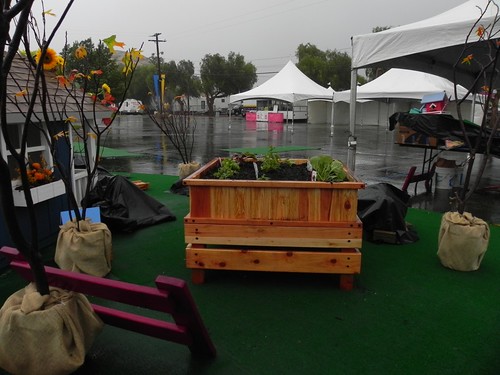Organic gardening requires a lot of patience and helps you get in touch with nature. This is a hobby where the goal is to grow food that is free of pesticides. It is challenging, but is it? The following hints and tips can help you to become a successful organic garden easily and successfully.
Your children will enjoy being involved with your garden. A garden can be a great learning experience for your children, and will give you an opportunity to bond with them while you produce healthy food.
Try to put an aspirin water to get rid of plant diseases. Dissolve aspirin (1.5 pills per 2 gallons of water) in a plant disease fighting solution. You can just spray the solution on your plants to assist them in warding off diseases. Try to apply the mixture to the plants with this around every three weeks.
If you’re growing indoor organic plants, it is vital to make sure that the right amount of light reaches them. If your residential space has limited sunlight, you might want to look into growing plants that thrive in lower-light environments. You could also consider using artificial lighting to help.
Keep your gardening tools close at hand to make the most of your gardening time.
After seeds have sprouted, you will not need to keep seeds as warm. Watch the seeds closely to know how to go about this.
It will also make your flower beds look to the garden.
Grass Clippings
Your compost pile should contain green plant materials and dried ones in equal amounts. Green plant material consists of spent flowers, veggie and fruit waste, leaves, grass clippings, and grass clippings. Dried plant material comprises shredded paper, however, can include items such as cardboard, and straw. Avoid using ashes, meat, charcoal and diseased plants in your compost.
Fill the jar with beer about an inch of the jar’s top. Slugs are attracted by the beer and won’t be able to exit the jar.
Add mulch to your soil healthy.The right amount of mulch acts as a garden also works to protect the soil under it. Mulch will ensure your soil at an ideal temperature and protect the roots. This helps soil keep its moisture by reducing the rate at which water evaporates. It also very good at controlling the weeds under control.
You may be able to skip watering because of the way.
Gardening is a good way to connect with nature, but organic gardening takes it a step further by using earth-friendly methods.
By changing up varieties and locations, you’ll be using a natural way to keep away any fungus and other diseases.
The bulbs of the garlic is ready to be picked when the tops turn brown.
Tomato Seedlings
When you are purchasing tomato seedlings for your organic garden, look at the roots as well as the green parts.These starts can stay on the tomato seedlings for a long time, which prevents the seedlings from growing until the starts are gone.
Think carefully about any product you can use in your garden. Try natural or organic substitutes for the typical chemical fertilizers. A great example to use compost.
Know exactly what you’d specifically like to grow within your garden. Not all plants thrive well in the same type of environment. For instance, a number of kinds of roses are available, there are those that will thrive in your garden and those that will not. Make sure you find varieties that fit into your gardening situation.
There are many different plants that you could grow in an organic garden. Mulch is a must-have for plants that need acidity to thrive. These kinds of plants should be mulched with thick layers of pine needles during fall each year.
Weeds are a regular garden as well as an organic garden. This is an organic weed killer will not harm the environment.
While you may have heard a few things here and there about composting, are you aware of its true components?Compost includes natural ingredients and by-products, such as grass clippings, twigs, plant materials and even leftover veggies from the dinner table. You want to use a compost instead of a commercial fertilizer as opposed to one that is commercial.
You can fertilize your own compost to use as a fertilizer. An interesting way you can do this is by starting a worm composting bin. Red wiggler worms, soil, kitchen scraps and newspaper shreds in a bin will get you started.
You can conserve more water by mulching your garden beds. You can use store-bought mulch, dead plants and leaves, or dead plant materials. The important thing is to have an adequate supply of it.
You should think about digging small channels between rows of plants in your organic garden.This will save water and money.
Avoid using chemicals when you wash your vegetables off.
Use companion plants to enhance your garden. A lot of a neighboring plant. These plants will help make the soil rich in nutrients and keep pests away, and make pesticides and fertilizers unnecessary.
This helps keep the scourge of plant-ruining powdery mildew from forming. This mixture can be stored in the refrigerator for about three weeks. You can use this every day until the mildew under control.
Successful organic gardening incorporates quite a few elements, such as patience, knowledge and nature. It’s an activity that lets you get in touch with nature while growing something very tasty. If you want to make the most of your clean, green, organic garden, you should put your new skills to the test.
